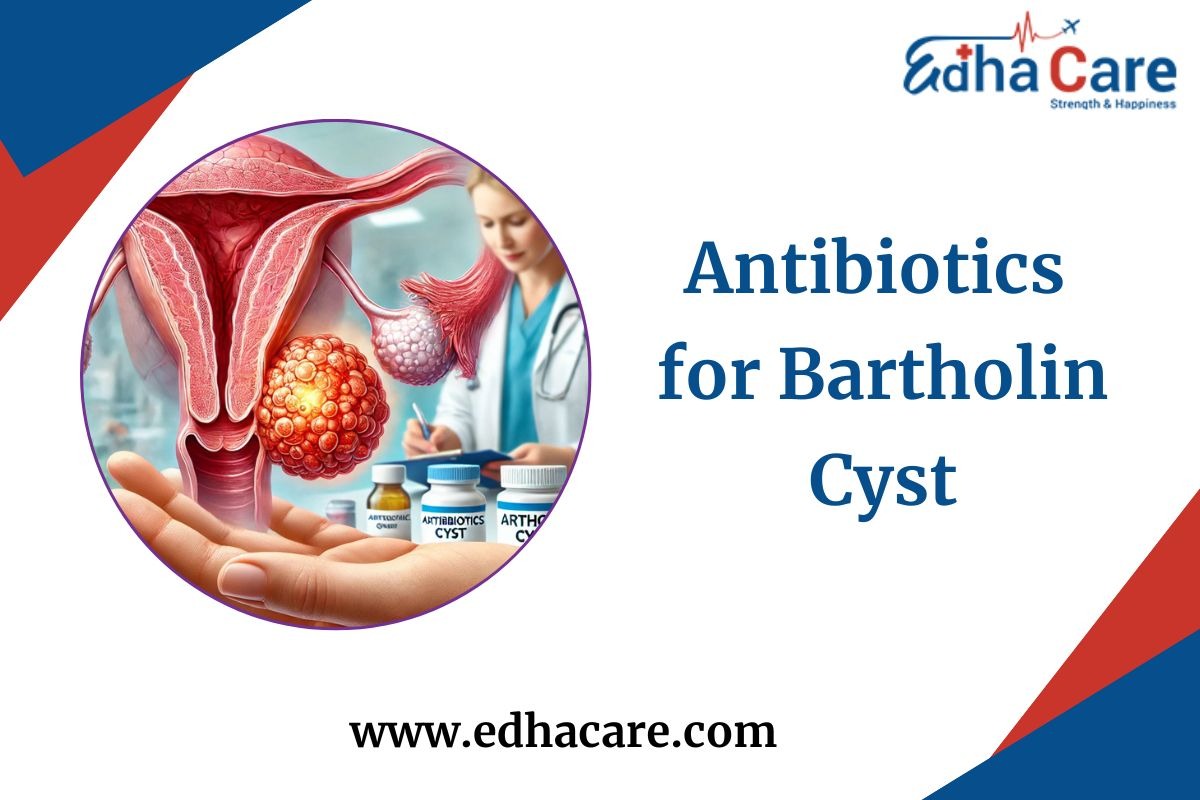A Bartholin cyst develops when the Bartholin glands — located on each side of the vaginal opening — become blocked. While many cysts are painless and resolve on their own, some can become infected, forming a painful abscess. In such cases, patients often wonder: Are antibiotics necessary for a Bartholin cyst?
This guide helps you understand when antibiotics are required and the best treatment approaches recommended by gynecologists.
What Is a Bartholin Cyst?
The Bartholin glands produce lubrication for the vaginal area. When the duct becomes blocked, fluid starts to accumulate, forming a cyst.
Common Causes Include:
- Bacterial infection
- Poor hygiene
- Injury or irritation in the vaginal area
- Blocked ducts due to inflammation
Most cysts remain small and painless, but if bacteria enter the cyst, it can become infected and form a Bartholin abscess, which requires medical attention.
Do All Bartholin Cysts Need Antibiotics?
No, Most uncomplicated Bartholin cysts do not need antibiotics and can be treated with:
- Warm sitz baths
- Pain relievers
- Hygiene care
Antibiotics are only needed when there is an infection.
When Are Antibiotics Necessary?
Doctors recommend antibiotics for Bartholin cysts only in the following situations:
1. Presence of an Abscess
If the cyst becomes red, swollen, extremely painful, or filled with pus.
2. Fever or Systemic Infection
Fever, chills, or general unwellness indicate bacterial infection.
3. Recurrent Infections
If a patient repeatedly gets infected cysts.
4. Patients with High-Risk Conditions:
- Diabetes
- Pregnancy
- Low immunity
- STD-related infection
In these cases, antibiotics help prevent worsening of the infection.
Common Bacteria Causing Bartholin Abscess
- Escherichia coli (E. coli)
- Staphylococcus aureus
- Streptococcus species
- Sexually transmitted infections:
- Chlamydia trachomatis
- Neisseria gonorrhoeae
Doctors may recommend antibiotics depending on which bacteria are suspected.
Common Antibiotics Prescribed
Depending on the infection, doctors may prescribe:
- Amoxicillin-clavulanate
- Ceftriaxone
- Clindamycin
- Doxycycline (for chlamydia)
- Azithromycin
- Metronidazole (if anaerobic bacteria are involved)
Self-medicating antibiotics is unsafe. Proper diagnosis is essential.
Other Treatment Options for Bartholin Cysts
1. Sitz Baths
Warm water baths reduce swelling and encourage drainage.
2. Incision and Drainage (I&D)
Used for painful abscesses.
3. Word Catheter
A small tube placed to allow drainage and prevent recurrence.
4. Marsupialization
Surgical technique to prevent future blockage.
5. Home Care
Ice packs, hygiene, and comfortable clothing.
When to See a Doctor Immediately
Seek medical help if you experience:
- Severe pain while walking or sitting
- High fever
- Rapid swelling
- Pus discharge
- Recurrence after previous treatment
Early diagnosis prevents complications.
Conclusion
Antibiotics for Bartholin cysts are only necessary when infection is present. While many cysts resolve naturally or with simple home care, infected cysts and abscesses require proper medical treatment. With timely diagnosis and the right antibiotics, patients can experience fast relief and prevent recurrence.
EdhaCare can help you connect with top gynecologists and women’s health specialists for safe, confidential, and personalized treatment.





Comments